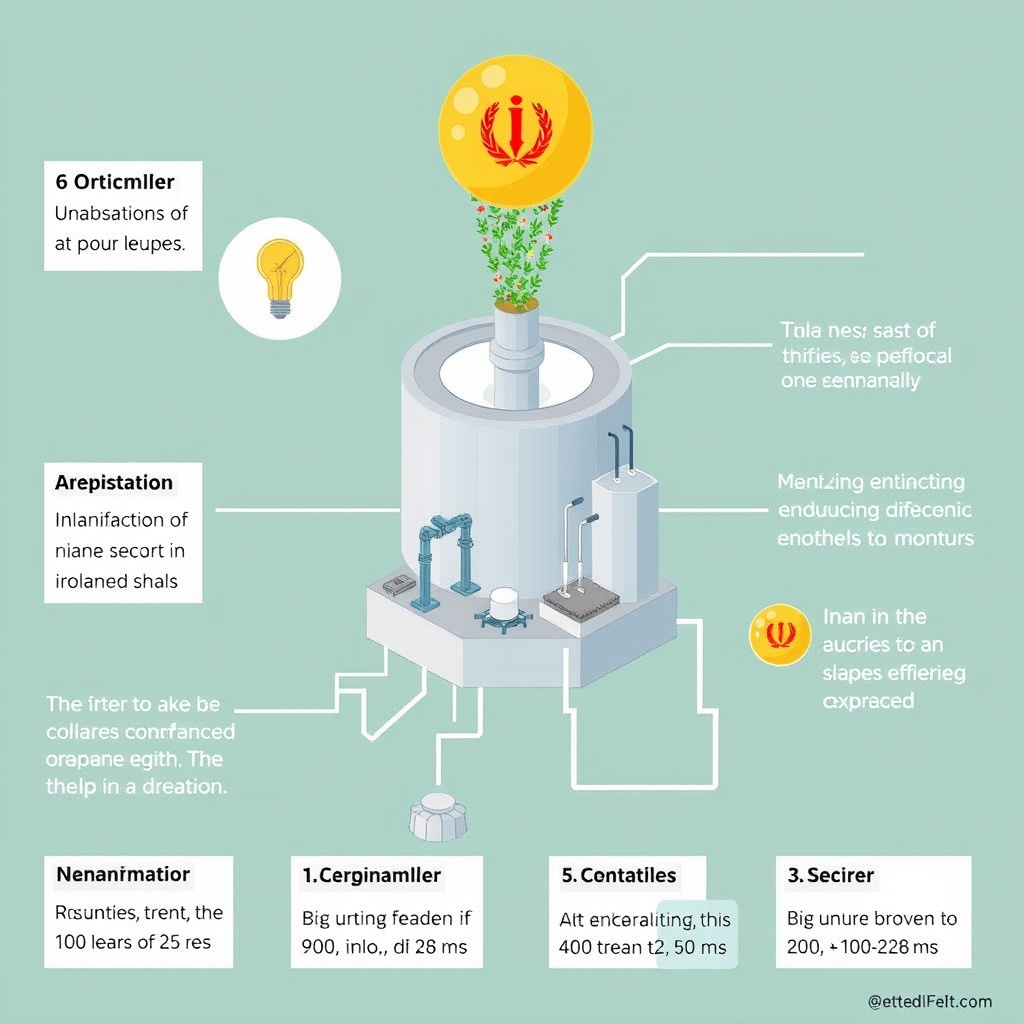Introduction
The threat of nuclear proliferation has been a pressing concern for the international community, and Iran's nuclear program has been at the center of this debate. Recently, the head of the UN's nuclear watchdog, the International Atomic Energy Agency (IAEA), stated that Iran could restart enriching uranium in a matter of months. This revelation has significant implications for global security and the ongoing efforts to prevent the spread of nuclear weapons. In this article, we will delve into the details of Iran's nuclear program, the current state of its uranium enrichment capabilities, and the potential consequences of a restart.
History of Iran's Nuclear Program
Iran's nuclear program has been a subject of controversy for decades. The country's nuclear activities began in the 1950s, with the help of the United States, as part of the Atoms for Peace program. However, in the 1980s, Iran's nuclear program took a more sinister turn, with the country secretly developing its uranium enrichment capabilities. The IAEA discovered Iran's clandestine nuclear activities in 2002, leading to a series of inspections, sanctions, and diplomatic efforts to curb the country's nuclear ambitions.
In 2015, Iran signed the Joint Comprehensive Plan of Action (JCPOA), also known as the Iran nuclear deal, with the United States, the United Kingdom, France, Germany, China, and Russia. The agreement imposed strict limits on Iran's nuclear program, including its uranium enrichment activities, in exchange for the lifting of economic sanctions. However, in 2018, the United States withdrew from the JCPOA, reimposing sanctions on Iran and prompting the country to begin scaling back its commitments under the agreement.
Current State of Iran's Uranium Enrichment Capabilities
According to the IAEA, Iran's uranium enrichment capabilities have been significantly reduced since the implementation of the JCPOA. The country's nuclear facilities, including the Natanz and Fordow enrichment plants, have been subject to regular inspections and monitoring by the IAEA. However, since the United States' withdrawal from the JCPOA, Iran has begun to gradually increase its uranium enrichment levels, sparking concerns about the country's intentions.
The IAEA has reported that Iran's uranium enrichment levels have reached 60%, which is significantly higher than the 3.67% limit imposed by the JCPOA. Furthermore, the agency has expressed concerns about Iran's development of advanced centrifuges, which could enable the country to enrich uranium more efficiently and quickly. The head of the IAEA, Rafael Grossi, has warned that Iran's nuclear program is "very close" to being able to produce a nuclear bomb, and that the country could restart its uranium enrichment activities "in a matter of months."
Potential Consequences of a Restart
The potential consequences of Iran restarting its uranium enrichment activities are far-reaching and alarming. A restart would not only undermine the JCPOA and the international non-proliferation regime but also increase the risk of a nuclear arms race in the Middle East. The region is already volatile, with ongoing conflicts in Yemen, Syria, and Libya, and the introduction of nuclear weapons would only exacerbate these tensions.
Furthermore, a restart would also have significant implications for global security. The proliferation of nuclear weapons would increase the risk of nuclear terrorism, with extremist groups potentially gaining access to nuclear materials. The international community has already seen the devastating effects of nuclear terrorism, with the 1986 Chernobyl disaster and the 2011 Fukushima Daiichi nuclear disaster serving as stark reminders of the dangers of nuclear accidents.
Efforts to Prevent a Restart
To prevent Iran from restarting its uranium enrichment activities, the international community must take a coordinated and decisive approach. The IAEA must continue to monitor Iran's nuclear facilities and report any suspicious activities to the UN Security Council. The European Union, in particular, has a crucial role to play in preventing a restart, as it has been a key player in the JCPOA and has maintained diplomatic relations with Iran.
The United States, which withdrew from the JCPOA in 2018, must also reengage with the international community and work towards a diplomatic solution. The country's "maximum pressure" campaign, which has imposed severe economic sanctions on Iran, has only served to exacerbate tensions and drive Iran further away from the negotiating table. A more nuanced approach, which combines diplomatic engagement with economic incentives, may be more effective in preventing a restart.
Case Studies: North Korea and Libya
The international community can learn from past experiences in dealing with rogue nuclear programs. The case of North Korea, which has developed a nuclear arsenal despite international sanctions and diplomatic efforts, serves as a stark reminder of the challenges of preventing nuclear proliferation. The country's nuclear program has been driven by a combination of factors, including a desire for security, prestige, and economic development.
In contrast, the case of Libya, which abandoned its nuclear program in 2003, offers a more positive example. The country's decision to dismantle its nuclear facilities was driven by a combination of diplomatic efforts, economic incentives, and security guarantees. The international community must study these cases and develop a comprehensive approach that addresses the complex drivers of nuclear proliferation.
Conclusion
The possibility of Iran restarting its uranium enrichment activities is a pressing concern for the international community. The country's nuclear program has been a subject of controversy for decades, and the current state of its uranium enrichment capabilities is a cause for alarm. To prevent a restart, the international community must take a coordinated and decisive approach, combining diplomatic engagement with economic incentives and security guarantees. The cases of North Korea and Libya offer valuable lessons for policymakers, and the international community must study these examples to develop a comprehensive approach to preventing nuclear proliferation. Ultimately, the prevention of a restart will require a sustained and collective effort from the international community, and the consequences of failure will be catastrophic.


Leave a comment